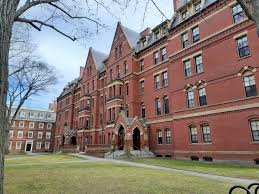US Bans Harvard from Admitting International Students
The Trump administration has escalated its confrontation with Harvard University by imposing a sweeping ban on the institution’s ability to enroll international students. This dramatic move represents the latest development in an ongoing dispute between the White House and America’s oldest university, following previous funding cuts totaling $2.65 billion. The Harvard international students ban, announced Thursday through a Department of State statement, requires currently enrolled foreign students to either transfer institutions or risk losing their legal immigration status.
Secretary of State Christie Noem reinforced the administration’s position through social media, asserting that Harvard had failed to comply with unspecified legal requirements. The Harvard international students ban serves as a stark warning to other American universities about potential consequences for non-compliance with administration policies. This decision directly impacts nearly 7,000 foreign students who comprised 27.2% of Harvard’s total enrollment last academic year, fundamentally altering the university’s global academic character.
Harvard officials have vehemently opposed the Harvard international students ban, denouncing it as an unlawful overreach of federal authority. University spokesperson Jason Newton condemned the action as retaliatory, warning that it would cause severe harm both to Harvard’s academic community and national interests. The administration’s move comes after months of escalating tensions that began when President Trump first targeted Harvard’s federal funding shortly after taking office, alleging systemic discrimination issues within the university.
The implementation of the Harvard international students ban creates immediate logistical and legal challenges for affected students. Those currently enrolled must now scramble to secure alternative academic arrangements or face potential immigration complications. University administrators are working urgently to provide guidance and support services, while simultaneously preparing legal challenges to what they view as an unjustified attack on academic freedom and institutional autonomy.
Education policy analysts suggest the Harvard international students ban may represent a broader administration strategy to pressure elite institutions perceived as oppositional to White House priorities. The decision has sparked concerns among other universities with significant international enrollments, who fear similar actions might target their programs. Critics argue the policy undermines America’s position as the world’s premier destination for higher education, potentially driving talented students to competing nations.
Harvard’s leadership maintains that the Harvard international students ban violates both statutory law and longstanding academic traditions. The university had previously taken legal action against the administration’s funding cuts, and legal experts anticipate swift courtroom challenges to this latest decision. As the conflict between the White House and America’s most prestigious university intensifies, the academic community watches closely for potential ripple effects across the higher education landscape.
The ban’s consequences extend beyond immediate student displacement, threatening Harvard’s research capabilities, cultural diversity, and financial stability. Many affected international students contribute significantly to cutting-edge research projects and academic programs that rely on global perspectives. University officials warn that the Harvard international students ban could damage America’s intellectual competitiveness if maintained long-term, as top global talent may begin seeking educational opportunities elsewhere.
This unprecedented federal intervention in university admissions sets a controversial precedent for government-academic relations in the United States. As legal battles loom and students face uncertain futures, the Harvard international students ban has become a flashpoint in broader debates about education policy, immigration controls, and institutional independence in the Trump era. The coming weeks will reveal whether this policy stands or falls under judicial scrutiny, and whether other universities will face similar restrictions on their international programs.
Go To Main Page

